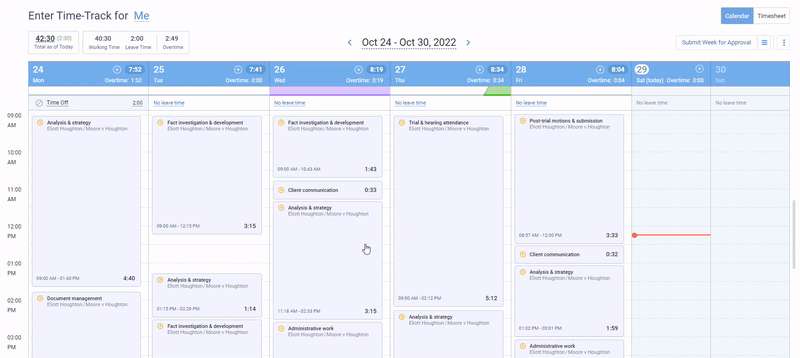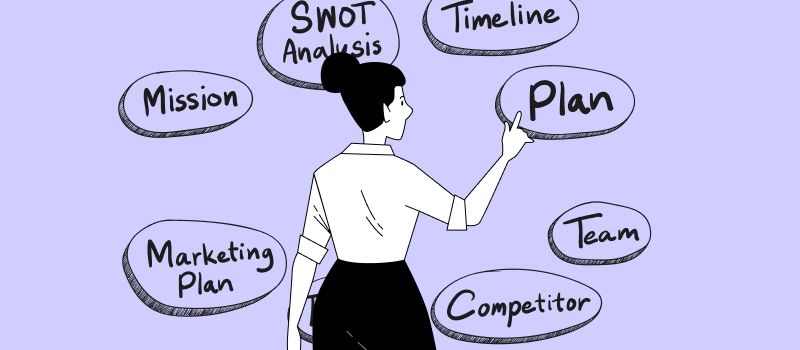
Do you ever wonder if there’s a better way to find meaning and satisfaction in your work and life? You’re not alone!
Cal Newport, the renowned author and professor, has a transformative approach that can help you cut through the clutter and focus on what truly matters to you.
In this article, we’ll dive into Cal Newport’s personal framework, a value-based strategy that can change the way you approach both your professional and personal life for the better.
So, get ready to unlock a new level of fulfillment and productivity, all while staying true to your core values.
Who Is Cal Newport?
Cal Newport is a popular author, computer science professor, and productivity enthusiast with unique insights into work and life management. He’s not your typical productivity guru – his ideas are often contrarian and deeply researched, which makes them both refreshing and practical.
Here are some of his major works:
Deep Work: Rules for Focused Success in a Distracted World
This book is arguably Newport’s most influential creation. It delves into the concept of “deep work” (i.e., the ability to focus without distraction on a cognitively demanding task), presents it as the superpower for the 21st century, and offers actionable strategies to cultivate this skill.
Digital Minimalism: Choosing a Focused Life in a Noisy World
In this book, Newport tackles the pervasive issue of smartphone addiction and social media overload. However, he doesn’t just tell you to cut down on screen time – he proposes a philosophy of using technology with greater intention. It’s all about reclaiming your attention and concentrating on what truly matters.
So Good They Can’t Ignore You: Why Skills Trump Passion in the Quest for Work You Love
This book flips the script on the popular career advice to “follow your passion.” Newport argues, with plenty of evidence, that developing valuable skills leads to career satisfaction and success. He introduces the idea of the “craftsman mindset” as opposed to the “passion mindset,” urging readers to focus on becoming excellent at something.
Cal Newport’s Personal Framework: Main Points
Now, let’s talk about Newport’s personal framework.
In a nutshell, it’s a productivity management system that doesn’t give you a rigid set of rules and principles to follow but is based on and driven by your personal values. Hence, it serves to improve your whole life and help you grow into the kind of person you are inclined and inspired to become.
The major idea behind Cal Newport’s personal framework is that a solid productivity system will benefit all aspects of your life. It’s not just about cranking through to-do lists – it’s about enhancing every part of who you are!
It not only helps you stay organized and on track with your tasks but also boosts your creativity, improves your mental well-being, and even empowers you to carve out more time for the things you love.
All in all, it encourages you to live up to your values and manifest them through your day-to-day actions and relationships with those around you and the world in general. With a system like this, you will be right on your way to fulfilling your vision of your best self.
Key Processes and Steps
Step 1: Figure out the different roles you play in life and what values you link to those roles.
Think of it as taking a closer look at the hats you wear every day – are you a parent, a friend, a professional? Then, define a unique set of values associated with each of these roles.
For example:
As a parent, you might value kindness and attentiveness to your family’s needs, while as a professional, you might prioritize creativity and leadership.
Understanding these connections helps you see what truly matters to you in each area of your life. It’s like mapping out your life compass, ensuring you’re heading in a direction that aligns with what you care about most.
Step 2: Jot down the actions that reflect your core values across different roles
Next, you need to identify and record the actions that align with your core values within your various roles. This means considering what specific, measurable, and concrete actions showcase the kind of person you want to be in each position you hold.
For example:
Think along the lines of:
- “As a developer, I aim to be someone who consistently delivers clean, efficient code even under tight deadlines.”
- “I want to be a leader who provides constructive feedback when someone on my team fails to meet the set quality standards.”
By doing this, you’re not just setting high-level goals but also creating a clear roadmap of actionable steps rooted in your values. It’s about bridging the gap between who you are and what you do every day in a tangible way.
Step 3: Use the words like “Always” and “Never” as your guiding principles.
In addition to the above, it comes in handy to explicitly define your non-negotiables in your personal code of conduct. Use the anchor words “Always” and “Never” as pillars that support and guide your actions, ensuring you remain true to your values, even when faced with challenging situations
For example:
The below examples of statements are a good way to cement your core beliefs:
- “I always prioritize honesty in personal and professional relationships.”
- “I always treat my team members with respect.”
- “I never use social media after 7 p.m. so I can have more high-quality time with my children.”
These absolute terms eliminate ambiguity, making your commitments clear and easier to follow. It’s like creating a sturdy framework for your behavior – it simplifies the complexity of moral decisions and helps embed your core values into everyday actions.
Step 4: Draft a weekly “Values Plan” and pick one action to work on.
This step means you sit down at the start of the week and pinpoint a core value you want to focus on, then choose a concrete way to practice that value. In other words, you need to set a mini-goal to keep yourself well-aligned with your bigger life goals, making each week a step towards becoming your ideal self.
For example:
- If you value kindness, your action might be to volunteer for at least an hour at a local charity.
- If intellectual growth is important to you, you could commit to reading a new chapter of a challenging book each evening.
The key is to make this a regular habit so your actions align with your values consistently, making them a part of your daily routine rather than a sporadic effort. This not only helps you grow as a person but also ensures that your daily activities are meaningful and fulfilling.
How to Make It Work: Pro Tips
1. Keep yourself organized
Good organization is your key to chaos-free life and work. So, choosing the right media for your productivity records will help you better stick to your plans and keep track of every tiny detail on the way to success.
Here are a couple of tools you may use:
- Create a dedicated journal: Jot down your personal values and ideas in a single physical notebook or a digital app. There, you can reflect on what’s truly important to you and explore why it matters to amp up your motivation even more.
- Set SMART goals: When it comes to planning what you want to achieve, the SMART goals framework is the best bet. Instead of saying, “I want to get fit,” you can set a Specific, Measurable, Achievable, Relevant, and Time-bound goal like, “I’ll run 3 miles every Monday, Wednesday, and Friday morning.” This way, you will actually know what to do to attain the desired target and what qualifies as success – the rest is a matter of discipline.
- Make daily to-do lists: Use our free template to create a prioritized to-do list that aligns with your values and roles. Remember to keep it realistic – avoid putting too many items for a single day/week (3 to-dos per day are usually enough).
- Regular reviews: Schedule weekly or monthly reviews of your plans and progress. This is a time to reflect on what worked well and what didn’t, and to adjust your plans accordingly. Did you stick to your working schedule? Have you spent enough time reading, jogging, or playing with your kids? If yes – great, keep it up. If not, figure out why and tweak your routine.
2. Track time spent on reaching your goals
Let’s suppose you’re trying to write a book.
You set a goal to write one chapter a week, but you never seem to get past the first few pages. When you start tracking your time, you realize you’re only dedicating 30 minutes a day to writing because you get distracted by emails and social media – now you know where the problem lies and can fix it.
When it comes to choosing a reliable time tracker for either personal or work-related projects, nothing beats actiTIME. It has a variety of features to plan things out, monitor ongoing progress, and analyze your results in depth.

Here are the core tools that actiTIME has to offer:
- Task management: Create tasks for each specific part of your project, whether it’s drafting an outline, writing, or editing. Set deadlines for the planned tasks, prioritize them and easily assign work to employees in case you work in a team.
- Time tracking: Log the time you spend on each task using a manual-entry timesheet, a mobile app with partly automated timers, or a fully automated browser extension that records your every online move. This can give you a clear picture of where your hours are actually going.
- Reporting: Use detailed reports to analyze how productive you’ve been over a week or month. It can highlight your performance patterns and help you eliminate any possible time-sucks.

Sign up for a free actiTIME trial to easily track progress on the way towards your goals.
3. Identify and get rid of distractions
Distractions are like little productivity vampires – they suck away your time and focus, leaving you with less energy to pour into your actual tasks. Whether it’s incessant social media notifications, the lure of online shopping, or even that quirky cat video your friend just sent you, these distractions can derail your productivity train before it even leaves the station.
In other words, they are the arch-enemies of Cal Newport’s deep work principle.
Such distraction-fighting methods as switching off phone notifications, working in a quiet space, time blocking, and similar tools are all great. Yet what to do if you work on the web where the ocean of distractions is just a click away?
Enter the Time Management Assistant – your new best friend in the fight against online distractions. This fully automated browser extension is designed to track your online activities and highlight where you’re losing precious minutes (or even hours). Basically, it’s like having a personal productivity coach right in your browser!

The cool thing about Time Management Assistant is that it’s not just about tracking, though. By visualizing the collected data, it enables you to understand your habits and nudges you toward more productive behaviors. So, instead of falling down the rabbit hole of distraction, you can learn to stay laser-focused on what really matters.

Learn more about Time Management Assistant and its benefits here.
Conclusion
Adopting Cal Newport’s personal framework toward work and life is less about following a stringent set of rules and more about aligning your actions with your core values.
It’s about taking a step back from the hustle and bustle, homing in on what truly matters, and allocating your time and energy accordingly. By doing so, you not only enhance your productivity but also cultivate a richer, more fulfilling life.
So, next time you’re tempted to get lost in the chaos, remember to focus on the elements that resonate with your values. That’s where the magic happens.













































